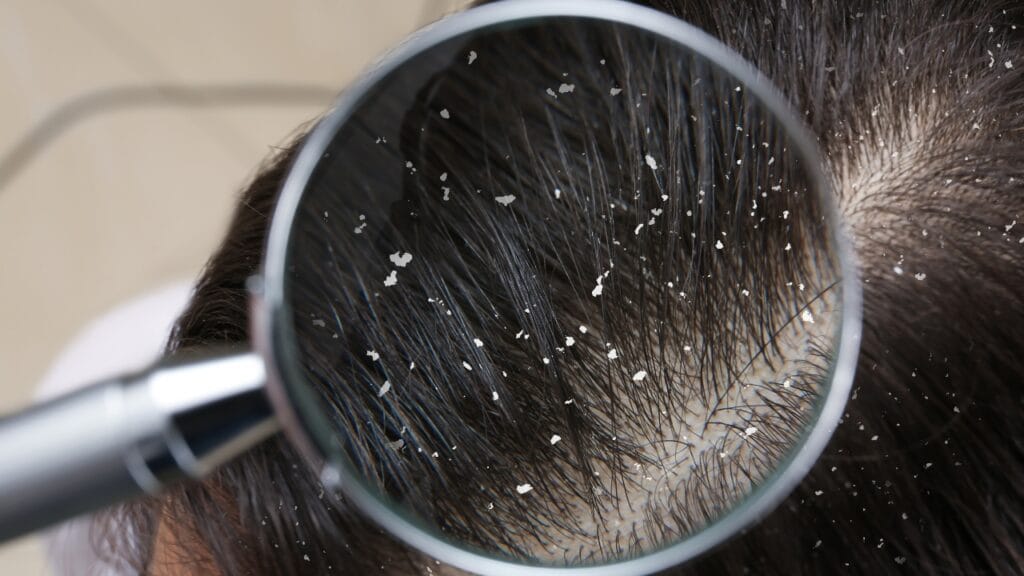Blog
Scalp Health: The Foundation for Healthy Hair
Your scalp is the fertile ground for your hair to flourish. Just like your skin, it needs proper care and attention to thrive. Unfortunately, many people overlook the importance of scalp health, focusing solely on the appearance of their hair. This neglect can lead to a variety of issues, from dandruff and itchiness to hair loss.
Understanding Your Scalp
Your scalp is a complex ecosystem, home to hair follicles, sebaceous glands, and a delicate balance of microorganisms. These factors work together to produce healthy hair growth. However, several elements can disrupt this balance, leading to scalp problems.
- Diet: A nutrient-rich diet provides essential vitamins and minerals for a healthy scalp. Deficiencies in vitamins like biotin, zinc, and iron can contribute to scalp issues.
- Stress: Chronic stress can disrupt the body’s hormonal balance, affecting sebum production and potentially leading to scalp problems.
- Environment: Pollution, harsh weather conditions, and exposure to chemicals can irritate the scalp.
- Hair products: The wrong hair products can strip the scalp of its natural oils or cause buildup, leading to irritation.

Common Scalp Issues
Let’s address some of the most common scalp problems:
- Dandruff: Characterized by white flakes, dandruff can be embarrassing and uncomfortable. It’s often caused by a naturally occurring fungus that overgrows on the scalp.
- Itchy Scalp: Itching can be a symptom of various scalp conditions, including dryness, dandruff, psoriasis, or allergies.
- Oily Scalp: Excessive oil production can lead to a greasy scalp, flat hair, and dandruff.
Maintaining a Healthy Scalp
A consistent scalp care routine is essential for maintaining optimal scalp health. Here are some key steps:
- Gentle Cleansing: Use a mild, sulfate-free shampoo to remove dirt and oil without stripping the scalp. (coming soon to a Wild Stallion Mane shop near you)
- Exfoliation: Regularly exfoliating the scalp can help remove dead skin cells and product buildup. Look for gentle scalp scrubs or exfoliating shampoos.
- Hydration: Keeping your scalp moisturized is crucial. Look for hydrating conditioners or scalp treatments.
- Scalp Massage: Massaging your scalp improves blood circulation, which can stimulate hair growth and relax the scalp.
Remember, everyone’s scalp is unique. What works for one person may not work for another. If you’re experiencing persistent scalp issues, consider consulting a dermatologist for professional advice.
By prioritizing scalp health, you’re taking a significant step towards achieving your hair goals. A healthy scalp is the foundation for strong, beautiful hair.
Understanding Dandruff
Dandruff is primarily caused by an overgrowth of a naturally occurring fungus called Malassezia. This fungus feeds on the oils produced by the scalp, creating irritation and flaking. However, other factors can contribute to dandruff, including:
- Dry skin: This is often referred to as “dry dandruff” and is characterized by small, white flakes.
- Sensitive skin: Some individuals may have sensitive skin that reacts to hair care products, leading to irritation and flaking.
- Underlying skin conditions: Conditions like psoriasis and eczema can cause dandruff-like symptoms.
Treating Dandruff
There are several over-the-counter treatments available for dandruff. Look for shampoos containing the following ingredients:
- Zinc pyrithione: This ingredient helps control the fungus that causes dandruff.
- Ketoconazole: An antifungal medication effective in treating dandruff.
- Salicylic acid: Helps loosen dandruff flakes and exfoliate the scalp.
- Coal tar: Can be effective but often has a strong odor.
If over-the-counter treatments don’t work, it’s essential to consult a dermatologist. They can diagnose the underlying cause of your dandruff and recommend appropriate treatments.


